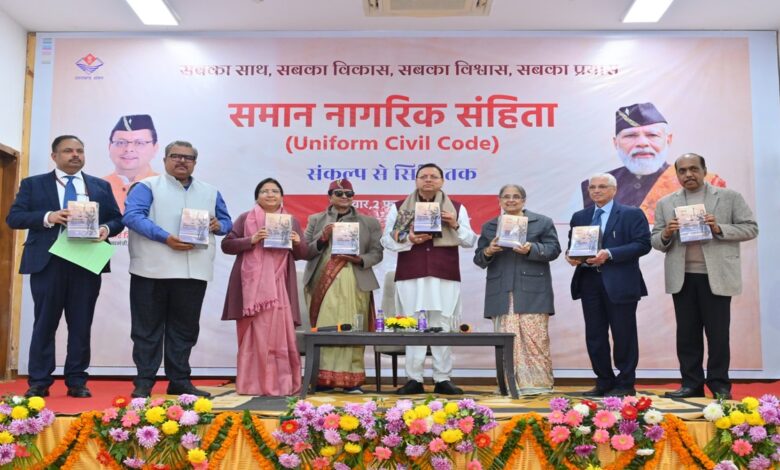
Feature: Uttarakhand, nestled in the Himalayan foothills of northern India, has made history by becoming the first state to enact a Uniform Civil Code (UCC), a legislation that governs personal matters such as marriage, divorce, adoption, and inheritance for all Indian citizens irrespective of their religious affiliations.
The landmark bill, aptly titled the “Uniform Civil Code Bill,” was spearheaded by the ruling Bharatiya Janata Party (BJP) and was officially passed on Wednesday, Feb. 7. This legislation supersedes the patchwork of religious and customary laws that have governed personal matters in India since its independence in 1947, effectively rendering all citizens equal under one set of laws.
Chief Minister Pushkar Singh Dhami emphasized that the UCC embodies principles of equality, uniformity, and equal rights, aligning with the vision outlined in Article 44 of the Indian Constitution. He underscored the UCC’s pivotal role in eliminating discrimination, particularly against women, thus marking a significant step towards gender equality.
The Uniform Civil Code (UCC) stands as a significant proposal in India, aiming to replace the diverse personal laws based on religions, customs, and traditions with a singular law applicable to all citizens regardless of their religious affiliations, caste, creed, sexual orientation, or gender.
Embedded within Part 4 of the Indian Constitution, the UCC is outlined as a directive principle, stating that the state “shall endeavour to secure for the citizens a uniform civil code throughout the territory of India.” Envisioned by the framers of the Constitution, the UCC seeks to establish a cohesive set of laws governing crucial aspects such as marriage, divorce, inheritance, and adoption, thereby superseding the disparate personal laws prevalent across different religions.
Over the years, the Supreme Court of India has consistently advocated for the implementation of the UCC through various judgments. Notable among these is the landmark case of Mohd. Ahmed Khan vs Shah Bano Begum in 1985, where the court, deliberating on the precedence of the Criminal Procedure Code (CrPC) versus Muslim personal law, underscored the need for the UCC’s adoption. Subsequent judgments, including the Sarla Mudgal case of 1995 and the Paulo Coutinho vs Maria Luiza Valentina Pereira case in 2019, reiterated the court’s call for the implementation of a uniform civil code.
However, the stance on the UCC remains contentious, as evidenced by the Law Commission’s findings in 2018. In a comprehensive consultation paper on family law reform, the Commission deemed the UCC “neither necessary nor desirable at this stage.” Instead, it recommended addressing discriminatory practices within specific religious laws through amendments and reforms.
While the implementation of the UCC remains a matter of debate at the national level, certain states in India have taken proactive steps towards its adoption. Goa, with its Civil Code dating back to Portuguese colonial times, serves as a notable example of a de facto Uniform Civil Code in operation. More recently, the Uttarakhand government announced its decision to implement the UCC, forming a committee tasked with drafting a proposal for its execution. Similarly, leaders in Assam and Gujarat have voiced support for the UCC, citing its potential to ensure justice and equality for all citizens, especially women.
As discussions surrounding the UCC continue to evolve, its implementation remains a subject of fervent deliberation, reflecting the complex intersection of law, religion, and societal norms in India.






